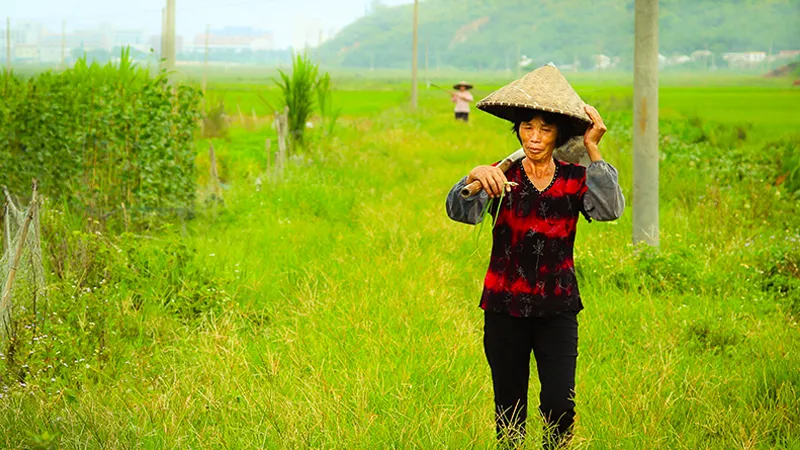
The savage greed of the civilised stripped naked its unashamed inhumanity.
You wept and your cry was smothered,
your forest trails became muddy with tears and blood,
while the nailed boots of the robbers
left their indelible prints
along the history of your indignity.
And all the time across the sea,
church bells were ringing in their towns and villages,
the children were lulled in mothers' arms,
and poets sang hymns to Beauty.
Today when on the western horizon
the sunset sky is stifled with dust-storm,
when the beast, creeping out of its dark den,
proclaims the death of the day with ghastly howls,
come, you poet of the fatal hour,
stand at that ravished woman's door,
ask for her forgiveness,
and let that be the last great word
in the midst of the delirium of a diseased Continent.

In the above magnificent poem ‘Africa’, Tagore condemns the brutality of European imperialism in Africa.He also exposes the hypocrisy of the West which preaches humanity and brotherhood while conducting acts of extreme savagery and finally asks the West to apologise for its ‘hingsho prolaap’ (violent delirium). The above lines are particularly relevant today because if Tagore were alive today, he could have accused India of similar hypocrisy.
Historically, India-Africa relations were built on opposition to colonialism and racial discrimination. Mahatma Gandhi had said, “India’s freedom will remain incomplete so long as Africa remains in bondage”. Independent India under Nehru offered support to the people of Africa who were struggling against discrimination and apartheid. Many African leaders, notably Kwame Nkumrah and Jomo Kenyatta, were inspired by Gandhi’s non-violent resistance to tyranny. The last decade was characterised by a deepening of economic ties between India and Africa. The third India-Africa Forum Summit, hosted by India in New Delhi in October last year, was India’s largest diplomatic event. A number of important announcements were made at the Summit — an additional credit line of US $10 billion, grant assistance of US $600 million, and 50,000 scholarships for African students. The Summit was also marked by a greater emphasis on India-Africa cooperation at the global fora over UN reforms, climate change, and WTO negotiations.
The Summit was largely described as a success by the national and international media and India’s initiatives were widely welcomed. Indian think tanks also organised a number of conferences which typically began by talking about India and Africa’s shared history and India’s commitment to Africa’s development.
However, the ordinary African in India faced racial taunts and lived in fear of a mob attack. In less than six months after the Summit, this irony has been thoroughly exposed. It has reached such a stage that the Africa Day celebrations, organised by the government, faced protests from the African embassies following the brutal killing of a Congolese national in Delhi. The embassies initially refused to participate in the celebrations. Indian Foreign Minister Sushma Swaraj swiftly responded and assured of stringent action against the perpetrators. But the fundamental question is: why are Africans facing racial discrimination in the land of Tagore, Gandhi and Nehru in the first place?
Stop living in denial
The answer lies in a sad truth that the Indian society likes to brush under the carpet. We, as a society, tend to overlook the fact that the average Indian is racist and prejudiced against the ‘other’. The ‘other’ could be a person from another Indian state or a person with a particular physical appearance or someone who speaks a different language or has different food preferences. Young people from the northeast regularly face racial discrimination in Indian cities and have also been victims of violent attacks. Taunting people on the basis of their skin colour is again considered to be a socially accepted behaviour in India. Jibes like kali kaluti’are very common in India. Migrants from Bihar are also routinely insulted for just being from Bihar. They have also faced violence in large cities like Mumbai.
Sadly, the political class, media and mainstream cinema have played their part in legitimising such cruel behaviour by reproducing the same stereotypes. Be it terming Kerala nurses as kali pili, or leading attacks against African women or threatening and endorsing attacks against Biharis, Indian politicians have done it all. Many Africans lament that the Indian media is unfair in its portrayal of Africans. The Indian media only writes about African drug dealers. Academic achievements of African students in India and hardships faced by Africans in India get limited coverage. While the India-Africa Summit received a fair deal of media coverage, the narrative largely focussed on India’s initiatives and what India is doing for Africa’s development. Similarly, Africans are generally portrayed as drug dealers and criminals in most Bollywood films.
It is high time that we as a society assume collective responsibility and undertake systematic steps to end racial discrimination of African nationals in India.
Recommendations
Firstly, mobocracy has to end and the rule of law needs to be re-established. Mob violence has received tacit support from the government as well as the media. Very strict actions need to be taken to let people know that violent groups of men are not a law unto themselves and race attacks will not be tolerated in India. However, we must understand that severe action against race attacks will not be sufficient to restore Africans’ faith. As a society, we must learn to respect and celebrate diversity as well as develop a deep sense of compassion for others. Verbal violence and the habit of teasing people needs to be widely condemned. In Amartya Sen’s words, ‘tolerance of intolerance’ has to end immediately.
As a first step, the government should launch a massive programme to sensitise auto drivers. Autos are an important means of transportation in most Indian cities and auto drivers are by and large insensitive and often aggressive bullies on the road. Ensuring that auto drivers treat African nationals with respect and dignity will make the average African national feel more comfortable. Indian universities must also play a larger role in this regard. They should ensure that African students feel welcome in India and wherever possible, African students should be accommodated within the campus itself so that they can mingle with other Indian students and participate in campus activities.

Some efforts should also be directed towards educating the general public about India’s historic relations with Africa. The fact that India was dedicated to Africa’s struggle against colonial rule, apartheid, and injustice is not well known. Although Africans know a lot about India, Indians have little knowledge about Africa’s history and culture. This needs to change for an equitable partnership between India and Africa. For instance, we take pride in the fact that Indian films are popular in Africa but make little effort to learn about African cinema.
Popularising African food, cinema and music in India can contribute towards building people to people relations. Music unites the world, and with the spread of technology, music has the potential to banish cultural and geographical boundaries. Therefore, India should intensify its cultural collaborations with the African continent by actively supporting collaborations between Indian and African musicians. Such collaborations should not remain confined to the capital’s cultural hubs. Sincere efforts should also be made to popularise them. The civil society in India and Africa can play a crucial role in this regard. So far, the role of civil society in furthering India’s relations with Africa has not been appreciated. The government must recognise that India-Africa relations cannot rest on trade and investment alone. There is an immediate need to build people to people relations.
The views expressed above belong to the author(s). ORF research and analyses now available on Telegram! Click here to access our curated content — blogs, longforms and interviews.






 PREV
PREV


